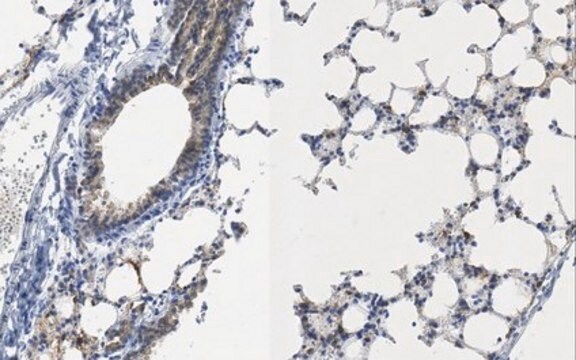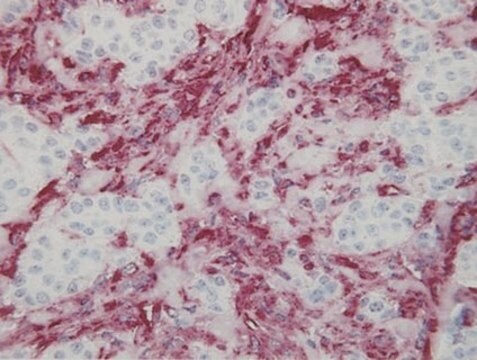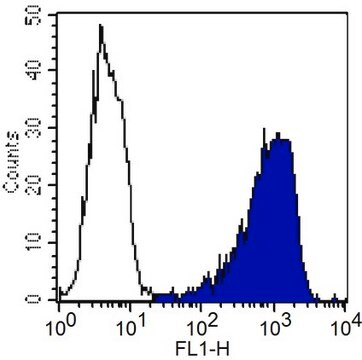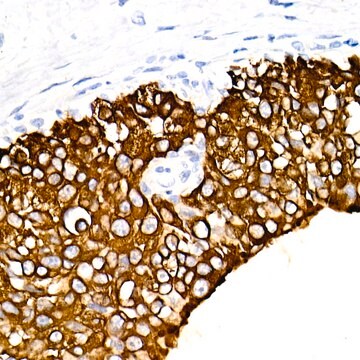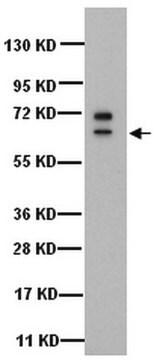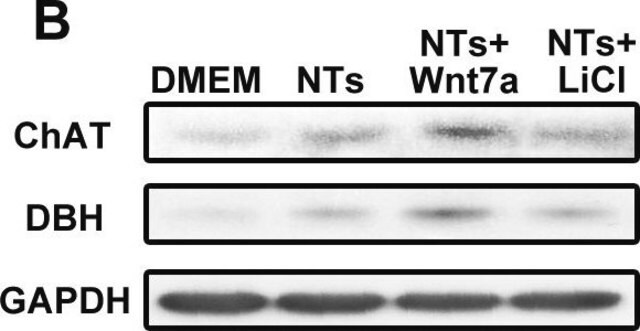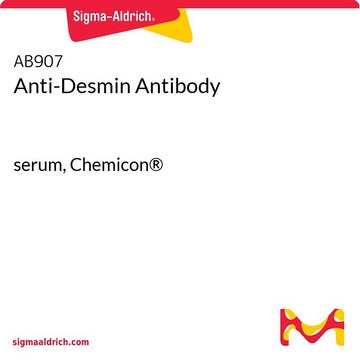MAB3238
Anti-Cytokeratin 19 Antibody, clone RCK108
clone RCK108, Chemicon®, from mouse
Sinónimos:
Anti-CK19, Anti-K19, Anti-K1CS
About This Item
Productos recomendados
biological source
mouse
Quality Level
antibody form
purified antibody
antibody product type
primary antibodies
clone
RCK108, monoclonal
species reactivity
human
manufacturer/tradename
Chemicon®
technique(s)
flow cytometry: suitable
immunocytochemistry: suitable
immunohistochemistry: suitable (paraffin)
western blot: suitable
isotype
IgG1κ
NCBI accession no.
UniProt accession no.
shipped in
dry ice
target post-translational modification
unmodified
Gene Information
human ... KRT19(3880)
General description
Cytokeratin 19 (molecular mass 40 kD) is a marker of simple epithelia. Cytokeratin 19 has been found in mesothelial and mesothelioma cells, and in ovarian cysts, cystadenomas, and ovarian carcinomas. It has been shown to be present in the basal layer of non-keratinizing stratified squamous epithelia such as the oral cavity and the ectocervix. Cytokeratin 19 has also been found in adenocarcinomas of the lung and in tumor cells of pulmonary metastases.
It has been reported that cytokeratin 19 can be found in the ductal cells of normal pancreas and in pancreas cancers. It was found that ductal cells of normal pancreas express a number of cytokeratins including cytokeratin 19, whereas acinar cells of normal pancreas also express numerous cytokeratins but not cytokeratin 19. Thus it is determined that pancreas cancers consistently express certain cytokeratins including cytokeratin 19, as do normal ductal cells, which indicates that pancreas cancers may originate from normal ductal cells.
Specificity
Immunogen
Application
Cell Structure
Cytokeratins
Immunohistochemistry: 1:100-1:200 on frozen and paraffin embedded tissue (after treatment with pepsin or trypsin) sections.
Immunocytochemistry: 1:100-1:200
Flow cytometry: 1:100-1:200.
Optimal working dilutions must be determined by the end user.
Physical form
Storage and Stability
Other Notes
Legal Information
Disclaimer
¿No encuentra el producto adecuado?
Pruebe nuestro Herramienta de selección de productos.
Optional
Storage Class
12 - Non Combustible Liquids
wgk_germany
WGK 2
flash_point_f
Not applicable
flash_point_c
Not applicable
Certificados de análisis (COA)
Busque Certificados de análisis (COA) introduciendo el número de lote del producto. Los números de lote se encuentran en la etiqueta del producto después de las palabras «Lot» o «Batch»
¿Ya tiene este producto?
Encuentre la documentación para los productos que ha comprado recientemente en la Biblioteca de documentos.
Artículos
This page shows the long-term culture and in-plate staining protocols using the CellASIC ONIX Microfluidic platform.
Nuestro equipo de científicos tiene experiencia en todas las áreas de investigación: Ciencias de la vida, Ciencia de los materiales, Síntesis química, Cromatografía, Analítica y muchas otras.
Póngase en contacto con el Servicio técnico